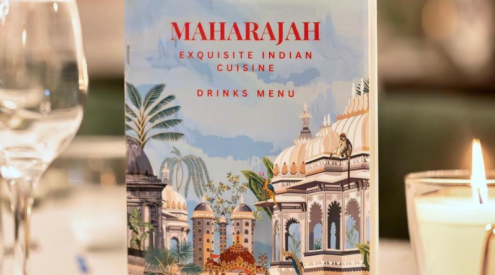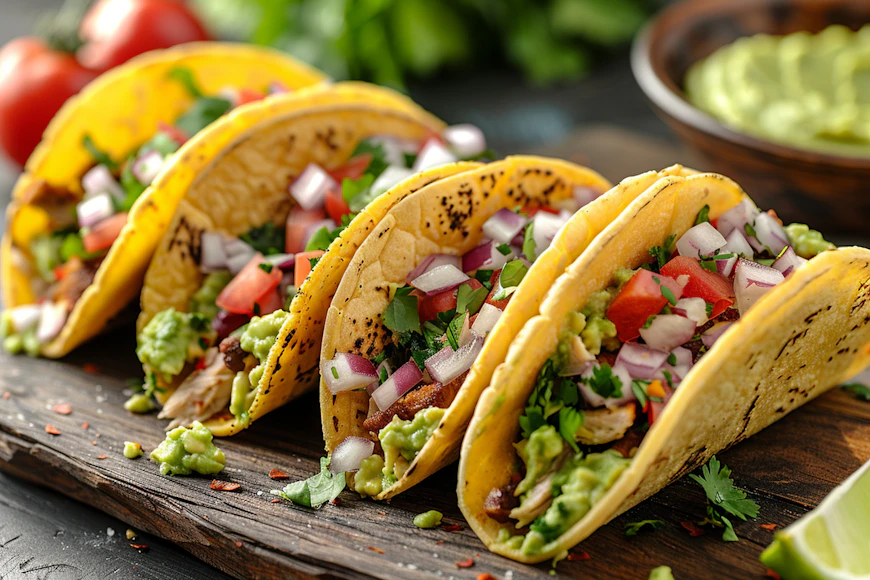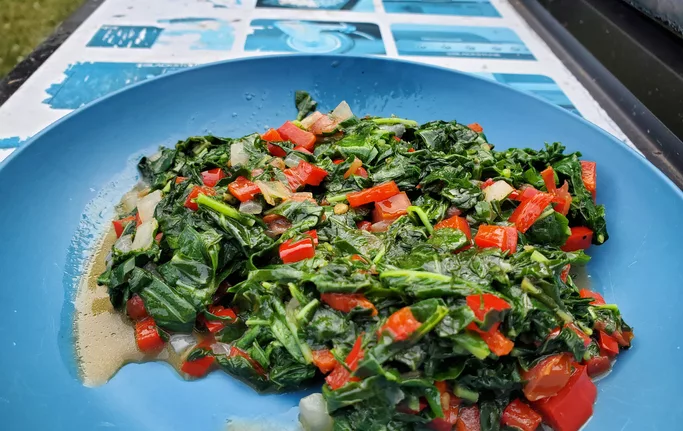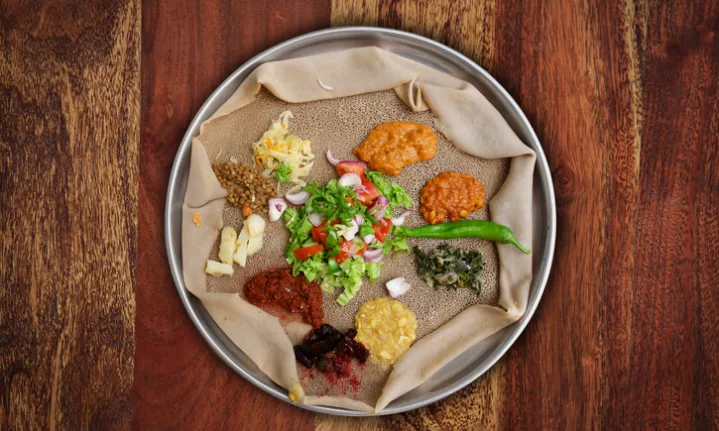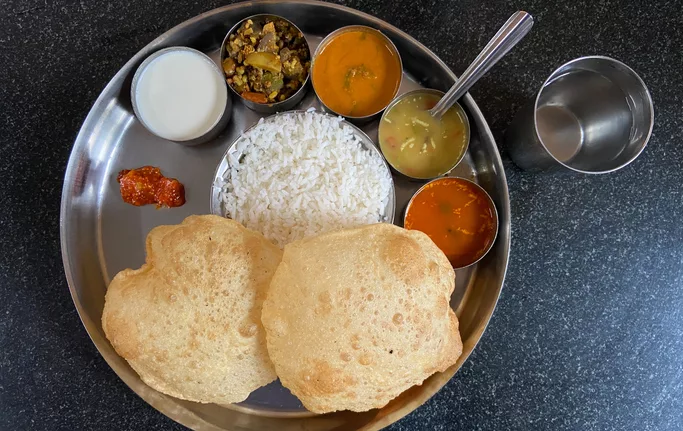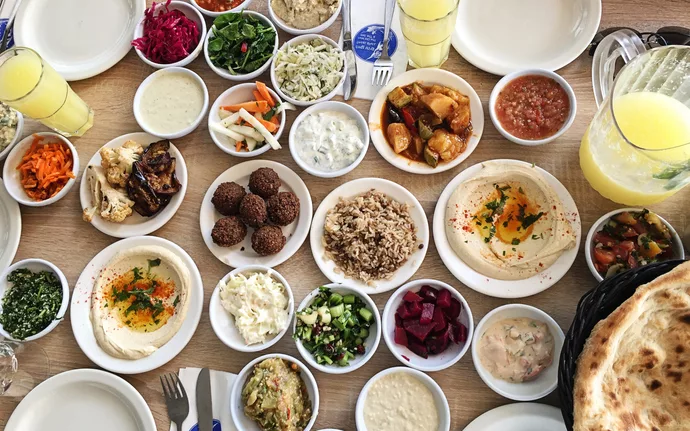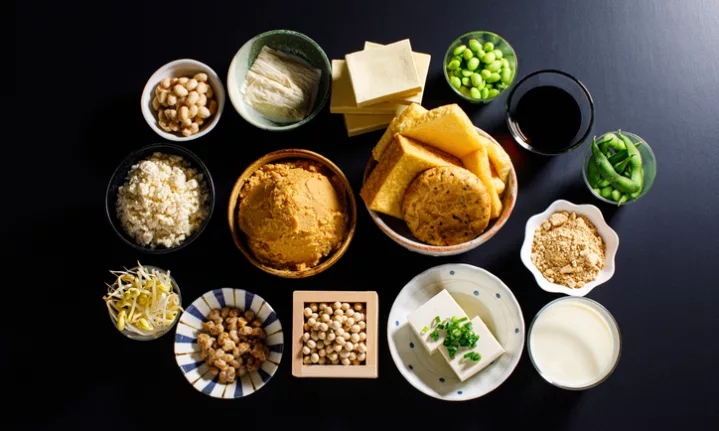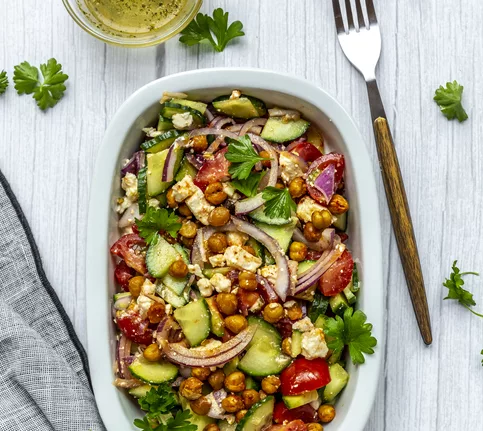Plant-based eating is not a fleeting trend. Across the globe, numerous societies have embraced plant-centric diets for centuries, long before the rise of trendy nut milk.
For many individuals, particularly those residing in the global south, vegan and vegetarian practices have been an integral part of cultural and religious traditions, representing a way of life rather than just a dietary choice.
Here, we delve into six distinct culinary cultures that prioritize plant-based fare over meat and animal products.
Jamaican Ital Cuisine
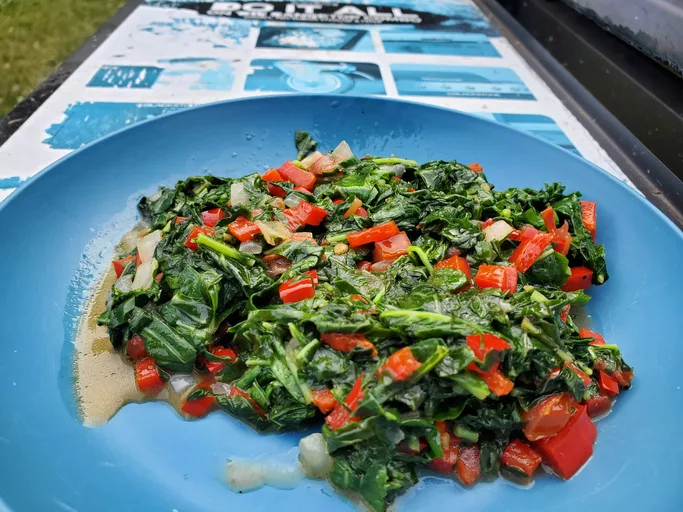
Jamaican Cooked Callaloo
Ital cuisine takes centre stage among adherents of the Rastafari movement, originating in Jamaica during the 1930s, and rooted in a philosophy of natural living. The Rastafarians, dedicated earth stewards, advocate sourcing sustenance from the land, an ethos embodied by Ital cuisine.
Uncompromisingly natural, organic, and devoid of processing, additives, chemicals, or meat, Ital dishes adhere to the spirit of vitality – a concept denoted by its name.
Jamaica’s conducive climate for cultivating an array of fruits and vegetables bolsters the availability of plant-based options, not only on the island but throughout the Caribbean.
For Rastafarians, adopting Ital eating aligns both with spiritual convictions and a conscious pursuit of well-being. Their philosophy hinges on preserving a close bond with nature and demonstrating reverence for all living entities. Consumption of pure, organic nourishment is believed to fortify this connection.
Ethiopian and Eritrean gastronomy
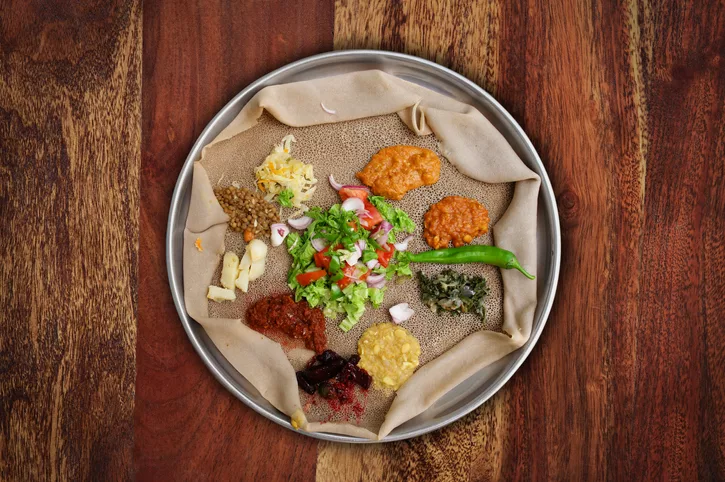
Injera Meal
The culinary landscape of Eritrea and Ethiopia flourishes with naturally plant-centric delicacies, largely a result of the fasting customs integral to Orthodox Christianity. Followers of this faith abstain from animal products for approximately 200 days annually, though plant-based sustenance remains permissible.
Fasting traditions, cultivated for centuries, have permeated society deeply. Orthodox-owned enterprises, including butchers, often shutter on fasting days, cafes abstain from stocking milk, and restaurants often proffer exclusive plant-based menus.
India’s flourishing vegetarian culture
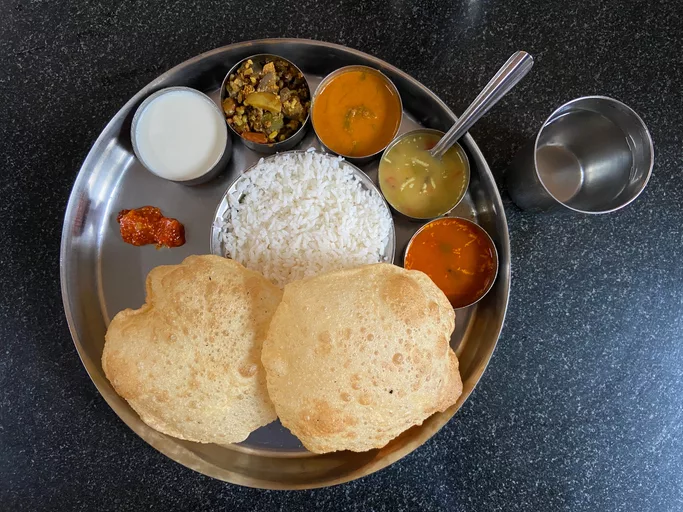
Simple veg thali with hot puri and other items.
India boasts the world’s lowest meat consumption rates, with an estimated 400 million individuals embracing vegetarianism, as per the Food and Agriculture Organization (FAO).
Deeply rooted in Hinduism, Jainism, and Buddhism – three prominent religions in India – is a reverence for plant-based eating, guided by the principle of Ahimsa, or non-violence and kindness towards all living beings.
While meat consumption isn’t entirely precluded in India, plant-based choices dominate its culinary fabric. The rich tapestry of Indian cuisine brims with vegetarian and vegan offerings, making locating a plant-centric section on a menu a seamless endeavor.
Israel’s vegan culture
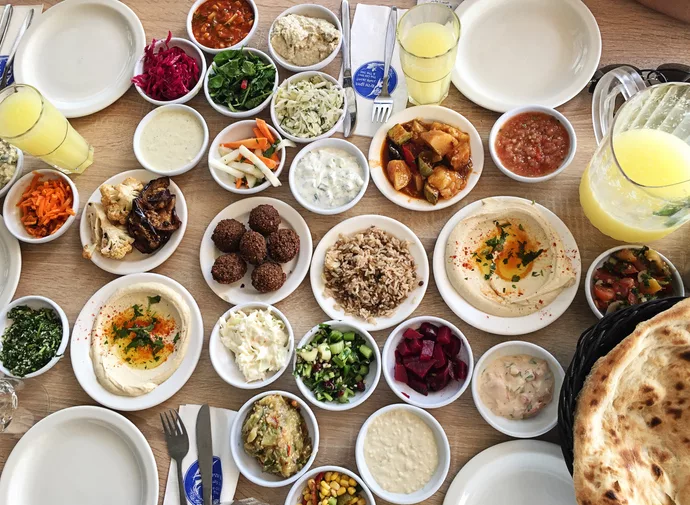
A table with Israel Appetizers – Hummus, Falafel, Tahini, Salads, Guacamole, Couscous, Pita Bread, Tabbouleh, Tzatziki, Rice, Feta, Meze, Cabbage, Eggplant, Corn, Carrot, Zucchini. Fresh juice.
In Israel, a remarkable 5.2% of the populace identifies as vegan, and an additional 13% as vegetarian, a testament to the nation’s burgeoning vegan movement and extensive array of plant-based options.
Vegan-friendly culture proliferates in Israel, exemplified by omnipresent offerings like hummus and falafels. Renowned international brands such as Dominos and Ben and Jerry’s readily furnish vegan alternatives.
Japan
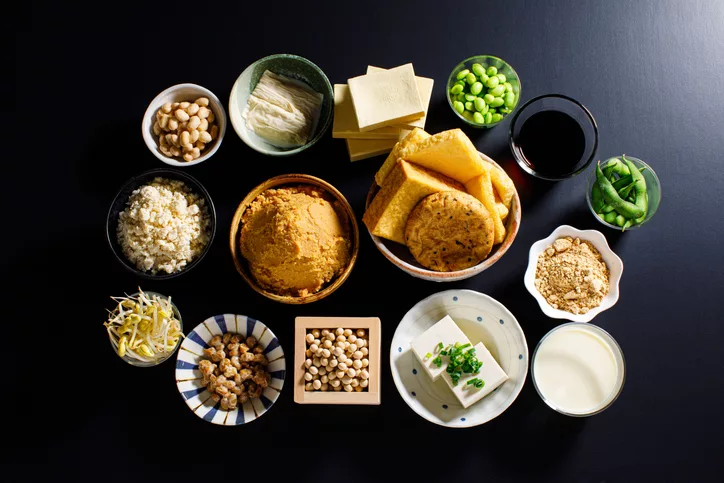
Japanese vegan foods made from soybeans include natto, miso, tofu, soy sauce, bean sprouts, and many others.
Elevating this penchant for plant-based eating, Japan’s culinary sphere embraces a form of vegetarian cuisine known as shojin ryori, derived from Buddhist monastic practices. Widely adopted with the surge of Zen Buddhism in the 13th century, shojin ryori, or “devotion cuisine,” underscores ahimsa’s essence – a philosophy rooted in compassion and non-violence.
Shojin ryori thrives on seasonal, locally-sourced ingredients, fostering a culinary landscape that minimizes waste by utilizing every component. Tofu, kuzu (a starch derived from an invasive plant in the American South), and an array of vegetables take center stage, often pickled, steamed, or boiled.
Okinawa, an island in Japan, boasts a predominantly plant-based populace, possibly contributing to its status as a “Blue Zone” – regions recognized for longevity. The Okinawan diet, centered on purple sweet potatoes, rice, soy products, and a medley of vegetables, epitomizes the intersection of culinary tradition and health.
Intriguingly, the day begins in Japanese culture with sushi – a vibrant plant-based spin on conventional sushi. Drenched in phytonutrients, vitamins, and minerals, this dish substitutes tomatoes for tuna, mushrooms for eel, and intertwines cucumber, avocado, and seaweed, encapsulating Japan’s culinary heritage.
The enriching Mediterranean diet
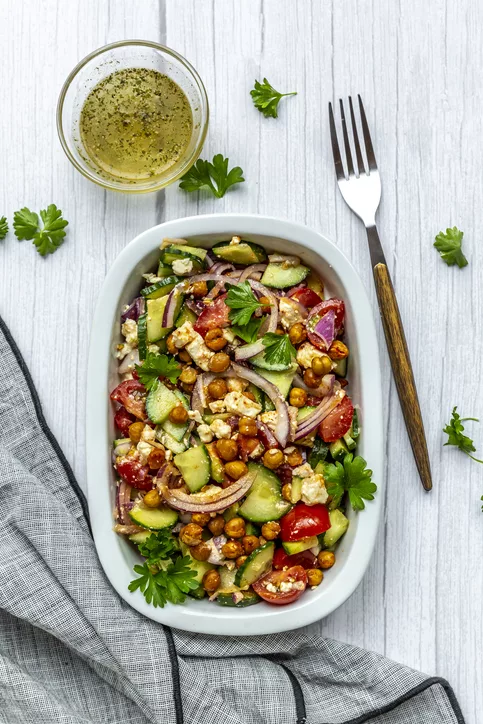
Synonymous with vitality, the Mediterranean diet encompasses Italian, Greek, Spanish, Israeli, and Palestinian cuisines, collectively celebrated for their healthful attributes.
Western Europe’s historical inclination toward vegetarianism, illustrated by the Pythagorean diet championed by philosopher Pythagoras, finds resonance in the Mediterranean region. This culinary philosophy, extolling unadulterated, fresh plant foods like roots, leaves, flowers, fruits, and seeds, defies modern meat substitutes.
Whilst olive oil, fish, and wine frequently headline discussions about the Mediterranean diet, its true health dividends emanate from an enduring emphasis on plant-based fare. Green leafy vegetables, legumes, nuts (especially walnuts, almonds, and pistachios), fresh fruits, and whole grains constitute its core.
Religious practices also shape Mediterranean dietary choices. Both Catholic and Greek Orthodox faiths observe fasting days that eschew meat, and Judaism’s kashrut laws dictate strict separation between meat and dairy. This inclination towards plant-based foods is mirrored in the Mediterranean culinary tapestry, bridging tradition and well-being.
Pictures: Getty Images
Follow us on social media for more travel news, inspiration, and guides. You can also tag us to be featured.
TikTok | Instagram | Facebook | Twitter
ALSO READ: A hoppy pilgrimage: beers from around the world

